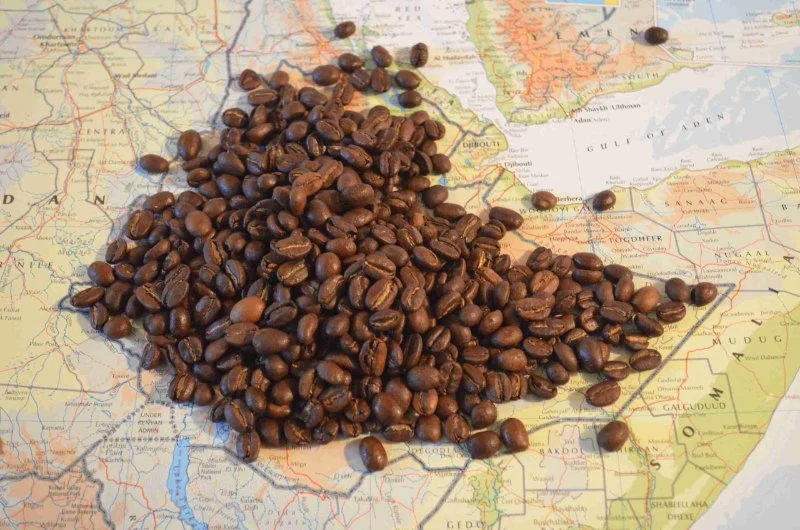
- 1. Introduction to Specialty Coffee Beans
- 2. Why Coffee Shops Are Focusing on Global Beans
- 3. The Rise of Single-Origin Coffee
- 4. Notable Regions Producing Specialty Coffee Beans
- 5. What to Expect When You Try Specialty Coffee
- 6. Why Choose Dine Droop for Coffee Exploration
1. Introduction to Specialty Coffee Beans
In recent years, coffee shops have begun to emphasize the importance of sourcing specialty beans from around the world. These beans, often referred to as "single-origin" or "specialty coffee," are grown in specific regions known for their ideal growing conditions, resulting in unique and flavorful coffee. Specialty coffee has quickly become a growing trend, with coffee enthusiasts seeking to explore the diverse flavors that different beans can offer. In this article, we’ll dive into why coffee shops are focusing on global beans and how this trend is changing the way we enjoy coffee.
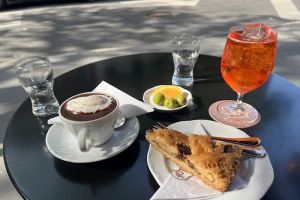
Bar Pisellino / bar pisselino
New YorkNew York CountyNew York
52 Grove Street, 7th Ave S at, New York, NY 10014, USA
2. Why Coffee Shops Are Focusing on Global Beans
The trend of highlighting global beans has gained momentum for several reasons, as coffee shops and roasters increasingly prioritize quality, sustainability, and the pursuit of unique flavors. Here are some key factors driving this shift:
2.1. Customer Demand for Quality and Flavor
As coffee culture has evolved, customers are becoming more discerning about the quality and flavor of the coffee they drink. Coffee drinkers are no longer satisfied with mass-produced blends but are seeking out premium, single-origin beans that offer distinctive flavors, aromas, and tasting notes. Coffee shops are responding to this demand by sourcing high-quality beans from renowned coffee-growing regions.
2.2. Sustainability and Direct Trade Practices
Many coffee shops are choosing to highlight beans from sustainable, direct trade partnerships with farmers. This allows them to ensure fair compensation for farmers and encourages environmentally responsible farming practices. By supporting small-scale farmers, coffee shops contribute to the long-term sustainability of coffee production and promote better living conditions for farmers.
2.3. Educational Opportunities for Customers
Highlighting global beans gives coffee shops the chance to educate their customers about where coffee comes from and the unique qualities of beans grown in different regions. It’s an opportunity for customers to broaden their palates and experience coffee like never before, learning about the history and traditions behind the beans they’re enjoying.
3. The Rise of Single-Origin Coffee
Single-origin coffee refers to beans that come from a specific region, farm, or even a single lot, rather than being blended with beans from other regions. This trend has become increasingly popular in recent years, as coffee drinkers seek a more authentic and nuanced experience. By focusing on single-origin coffee, coffee shops can showcase the unique characteristics of beans from specific regions.
3.1. The Importance of Terroir
Just as with wine, the concept of "terroir" plays a crucial role in coffee production. Terroir refers to the environmental factors such as altitude, climate, and soil that influence the flavor profile of the beans. Single-origin coffees allow customers to taste the terroir of different regions, resulting in a diverse and complex coffee-drinking experience.
3.2. Experimenting with Brewing Methods
Single-origin coffees offer a wide range of flavors that can be highlighted through various brewing methods. Whether using pour-over, French press, or espresso, different brewing techniques can accentuate the unique qualities of each coffee. This versatility makes single-origin coffee a favorite among coffee aficionados who enjoy experimenting with different preparation methods to bring out the best in each cup.
4. Notable Regions Producing Specialty Coffee Beans
Several regions around the world are known for producing high-quality specialty coffee beans. Each region’s beans have their own unique characteristics, shaped by the growing conditions and processing methods used. Here are a few of the most notable regions:
4.1. Ethiopia
Ethiopia is often considered the birthplace of coffee, and its beans are known for their vibrant and complex flavor profiles. Ethiopian coffee is often fruity, floral, and bright, with tasting notes of berries, citrus, and jasmine. These beans are typically processed using the washed or natural method, which enhances their distinctive flavors.
4.2. Colombia
Colombian coffee is famous for its well-balanced flavor profile, with medium acidity and notes of caramel, chocolate, and nuts. Colombian beans are often used in blends but are also celebrated on their own, particularly for their smooth and easy-drinking characteristics.
4.3. Costa Rica
Costa Rican coffee is known for its bright acidity, clean cup, and sweet flavors. Beans from Costa Rica are typically processed using the washed method, which helps accentuate the fruity and citrusy notes found in the coffee. The high-altitude regions of Costa Rica produce some of the best specialty coffee in the world.
4.4. Jamaica
Jamaican Blue Mountain coffee is one of the most sought-after and expensive coffees in the world. Grown in the Blue Mountains of Jamaica, these beans are known for their mild flavor, low acidity, and smooth texture. The high-altitude conditions of the region, along with careful processing, contribute to the unique qualities of this coffee.
5. What to Expect When You Try Specialty Coffee
When trying specialty coffee, you’ll notice a few key differences compared to traditional coffee:
5.1. Complex Flavors
Specialty coffee offers a broader range of flavors and aromas than mass-produced coffee. Expect tasting notes ranging from fruity and floral to chocolatey and nutty, with some coffees even exhibiting hints of spices or herbs. Each cup offers a unique experience, with flavor profiles that vary depending on the origin and processing method of the beans.
5.2. Freshness
Specialty coffee is typically fresher than standard coffee, as it is often roasted in smaller batches. This freshness contributes to a more vibrant and flavorful cup, as the natural oils and flavors of the beans are preserved.
5.3. A More Refined Experience
Specialty coffee is often brewed with precision, using specific techniques designed to bring out the best in the beans. Whether it’s through pour-over, siphon brewing, or other methods, you can expect a more refined and carefully crafted coffee experience.
6. Why Choose Dine Droop for Coffee Exploration
At Dine Droop, we’re passionate about helping you discover the best coffee experiences. Whether you’re seeking specialty beans from around the world or just looking to explore new coffee shops in your area, we provide the resources and information you need to elevate your coffee journey. Visit Dine Droop today to find your next coffee adventure!


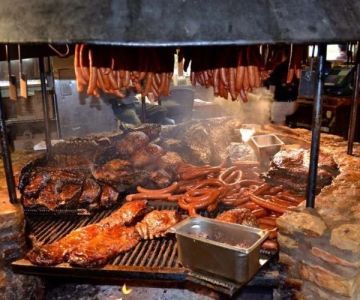
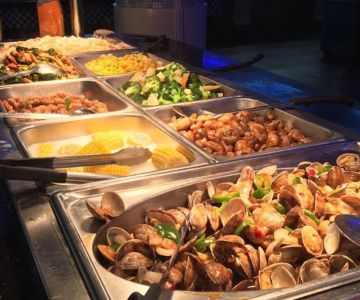
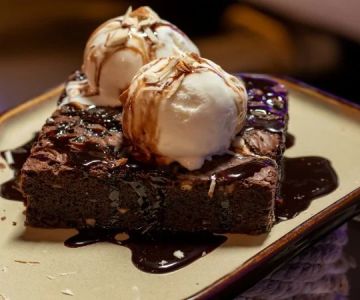

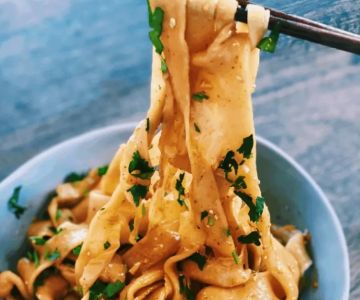

 Capri Pizza & Pasta4.0 (977 reviews)
Capri Pizza & Pasta4.0 (977 reviews) Silver Moon Deli4.0 (116 reviews)
Silver Moon Deli4.0 (116 reviews) The Lowery Bar & Kitchen4.0 (806 reviews)
The Lowery Bar & Kitchen4.0 (806 reviews) The Celtic Rail NYC4.0 (265 reviews)
The Celtic Rail NYC4.0 (265 reviews) The Burger0.0 (0 reviews)
The Burger0.0 (0 reviews) La Nueva Union Bakery4.0 (150 reviews)
La Nueva Union Bakery4.0 (150 reviews) How Fast Food Restaurants Are Introducing Plant-Based Options Successfully
How Fast Food Restaurants Are Introducing Plant-Based Options Successfully Discovering the Best Fine Dining Restaurants for Romantic Evenings
Discovering the Best Fine Dining Restaurants for Romantic Evenings How Brunch Restaurants Are Offering Unique Cocktails and Mocktails to Guests
How Brunch Restaurants Are Offering Unique Cocktails and Mocktails to Guests How Bar and Grill Spots Are Integrating Interactive Dining Experiences for Groups
How Bar and Grill Spots Are Integrating Interactive Dining Experiences for Groups Exploring Chocolate Factories That Offer Tours and Tastings | Dine Droop
Exploring Chocolate Factories That Offer Tours and Tastings | Dine Droop How to Pair Wine with Different Types of Cheese Like a Pro
How to Pair Wine with Different Types of Cheese Like a Pro